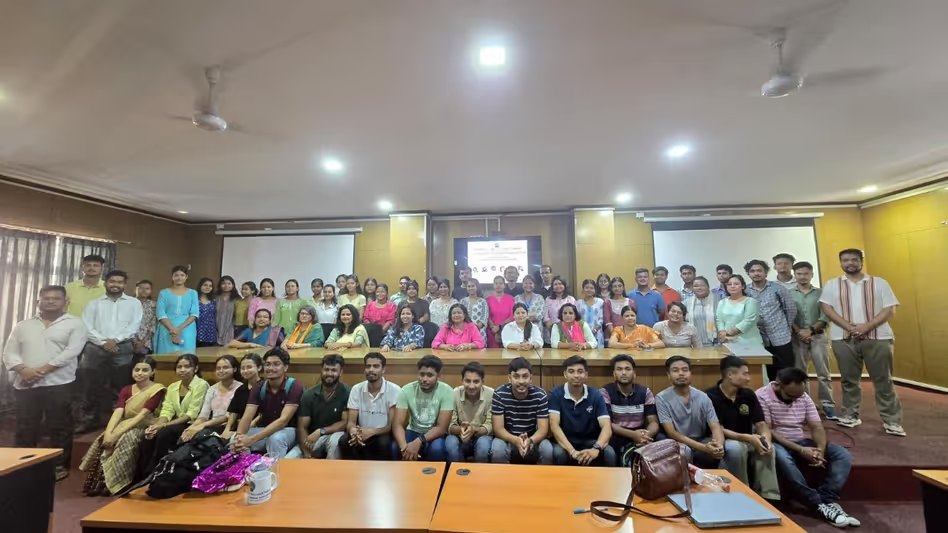The Assam Women Journalists’ Forum joined forces with Gauhati University to host a pioneering training session titled “Reporting Climate Change and Gender.” This initiative aimed to empower journalists with the necessary skills to effectively report on two of the most pressing issues of our time. The collaboration marked a significant step towards enhancing awareness and knowledge about the intricate relationship between climate change and gender.
The session attracted a diverse group of participants, including aspiring journalists and seasoned reporters eager to refine their understanding of these critical topics. As climate change continues to impact various aspects of life, its effects on marginalized communities, particularly women, have garnered increasing attention. The training emphasized the need for nuanced reporting that highlights these intersections.
Experts in the field led the session, sharing insights on the challenges women face in the context of climate change. They discussed how environmental changes disproportionately affect women, who often bear the brunt of resource scarcity and displacement. The speakers highlighted case studies illustrating how climate-related issues can exacerbate gender inequalities, leading to a cycle of vulnerability.
Participants engaged in discussions about the importance of gender-sensitive reporting. They explored techniques for capturing stories that reflect the experiences of women impacted by climate change. The forum encouraged attendees to think critically about their narratives, urging them to include voices from the ground level. This approach aims to provide a more comprehensive view of the issues at hand, ensuring that women’s experiences are not overlooked.
The training also tackled practical aspects of reporting, including the use of data and statistics. Journalists learned how to source credible information and present it effectively in their stories. The session underscored the importance of rigorous research and ethical journalism, emphasizing that accurate reporting can drive awareness and advocacy.
Moreover, the forum explored the role of media in shaping public perception and policy on climate change. Participants discussed how responsible journalism can influence decision-makers and promote sustainable practices. By equipping journalists with the tools to report on these issues, the forum aims to foster a more informed public and encourage active engagement in environmental and gender-related matters.
Networking opportunities also formed a crucial part of the event. Journalists connected with peers, fostering collaborations and sharing experiences. This sense of community can empower participants to support each other in their endeavors, creating a more resilient network of women journalists dedicated to addressing climate change and gender issues.
The event received positive feedback from participants, who expressed appreciation for the knowledge gained. Many attendees highlighted the relevance of the training in today’s context, recognizing the urgent need for informed reporting on climate change. They acknowledged the responsibility of journalists to bring attention to gender-related challenges arising from environmental changes.
The Assam Women Journalists’ Forum envisions this session as a catalyst for change. By promoting gender-sensitive reporting, they aim to inspire journalists to take an active role in advocating for women’s rights in the context of climate change. The forum plans to organize further sessions, expanding their reach and impact within the journalism community.
As climate change continues to pose significant challenges, initiatives like this training session play a vital role in equipping journalists to address these issues. The collaboration between the Assam Women Journalists’ Forum and Gauhati University reflects a commitment to fostering informed dialogue and responsible reporting. By addressing the intersections of climate change and gender, they strive to amplify marginalized voices and promote a more equitable future.


